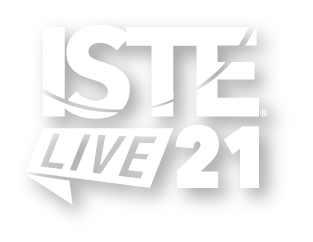

Culturally Responsive STEM Education |
Listen and learn : Lecture
Victoria Thompson
Let's disrupt current STEM culture and curriculum and implement practices, pedagogy and activities that students will actually engage with and learn from. See how to decolonize your STEM curriculum, create authentic learning experiences for your students and learners, promote student choice and voice, and infuse pertinent topics into your classrooms!
| Audience: | Curriculum/district specialists, Teachers |
| Skill level: | Beginner |
| Attendee devices: | Devices useful |
| Attendee device specification: | Smartphone: Android, iOS, Windows Laptop: Chromebook, Mac, PC Tablet: Android, iOS, Windows |
| Topic: | Equity & inclusion |
| Grade level: | PK-12 |
| Subject area: | Math, STEM/STEAM |
| ISTE Standards: | For Education Leaders: Equity and Citizenship Advocate
Designer
Empowered Learner
|
The purpose of this session is to demonstrate how technology can help provide a culturally relevant environment for STEM teaching and learning. This is something that is super near and dear to my heart because it was built from the truth that we desperately need to create more inclusive environments for STEM. Although I never got the message that STEM wasn’t for me as a child through K-12 education I am learning that I am apparently part of a minority, especially as a Black woman. I have met with countless educators who are weary of their STEM abilities due to messages that they received when they themselves were children (i.e. “you’re not good at science!”, “oh, he has always been bad at math,” “computers are too hard for you”) or generational messages (i.e. “girl’s can’t do math,” “men can’t be nurses, they should only be doctors”). To me, this is absolutely unacceptable and there needs to be a shift in the tides. We are all capable of being great at STEM and we should all be capable of reaching our potential. The operative word here is “should:” we should all be capable of reaching our potential, but there are often systemic roadblocks that get in the way of this.
Technology intervention used in this session will be devices (laptop, phone, tablet) for both the students and the teachers in the classroom, Microsoft Forms/Google Forms (online form websites, used for ease of grading, data tracking, and creating engaging questions), Microsoft Teams/Google Classroom/Class Websites (all hubs for posting, sharing, and creating information to share to students), Pear Deck (a digital presentation and engagement tool, used for presenting information and engaging students in analytical thinking), MathShare (a digital problem-solving aid, used for step-by-step solving walkthroughts), Microsoft OneNote (a note-taking app, used for organization of documents, lists, and notes), Script Calculator (a digital inking app for math and problem solving, used for digital inking capabilities), and Khan Academy (a math website, used for enrichment and remediation lessons).
The primary model employed in this session will be "listen and learn" model. Attendees will learn about how using technology to foster a culturally responsive STEM classroom through the experience of listening to lesson suggestions, solving open-ended problems in those lesson suggestions, and arriving at solutions in many different ways. Attendees will also have the opportunity to see strategies for how to lay the foundation for their own inquiry lessons or adjust modifying lessons to fit this model if they so choose.
Evidence of success will be measured both during and after the session. The metrics during the session are the teacher’s ability to create intellectually ambitious tasks with technology and use technology to create effective scaffolds and supports. When the 2020-2021 school year begins, a survey will be sent out where each educator will reflect on their future ability to engage students in active learning with technology based off of the session.
First, welcome and introductions will occur. This will be in a peer-to-peer interaction format, where the audience will think-pair-share about themselves and then share with the group. Afterwards, the presenter will introduce herself. Then, following five minutes will be reserved for information on why this topic is important and also the data that supports this. After that, the presenter will share strategies working with 4 different populations (PK-2, 3-5, 6-8, and 9-12) and how integrating technology benefits both STEM content and the principles of cultivating a culturally responsive environment. The following 40 minutes of the time will be spent sharing and interacting with lessons and activities given by the presenter and sharing ways to make the lesson or activity more culturally responsive. The last ten minutes will be reserved for questions/comments regarding the session or the session topic.
Welcome and introductions will take five minutes. Information on why this topic is important and also the data that supports this will take five minutes. For 30 minutes, the presenter will interactively share strategies working with 4 different populations (PK-2, 3-5, 6-8, and 9-12) and how integrating technology benefits both STEM content and the principles of a culturally responsive classroom. The following 40 minutes of the time will be spent evaluating lessons and activities. The last ten minutes will be reserved for questions/comments regarding the session or the session topic.
Racism defined: https://www.dismantlingracism.org/racism-defined.html
Addressing racial injustice via The Microsoft Blog: https://blogs.microsoft.com/blog/2020/06/23/addressing-racial-injustice/
Culturally responsive STEM initiative: https://stemteachersnyc.org/culturally-responsive-stem/

Victoria Thompson is a STEM Integration Transformation Coach and education technology consultant from Tacoma, WA. She is passionate about empowering teachers and students to use technology purposefully and leads professional development for technology integration in math education, decolonizing STEM curriculum, using technology to create inclusive classrooms, and project-based learning as a vehicle for equity. During her free time you can find her at Disneyland with her wife or taking her dog, Ren, on a walk.